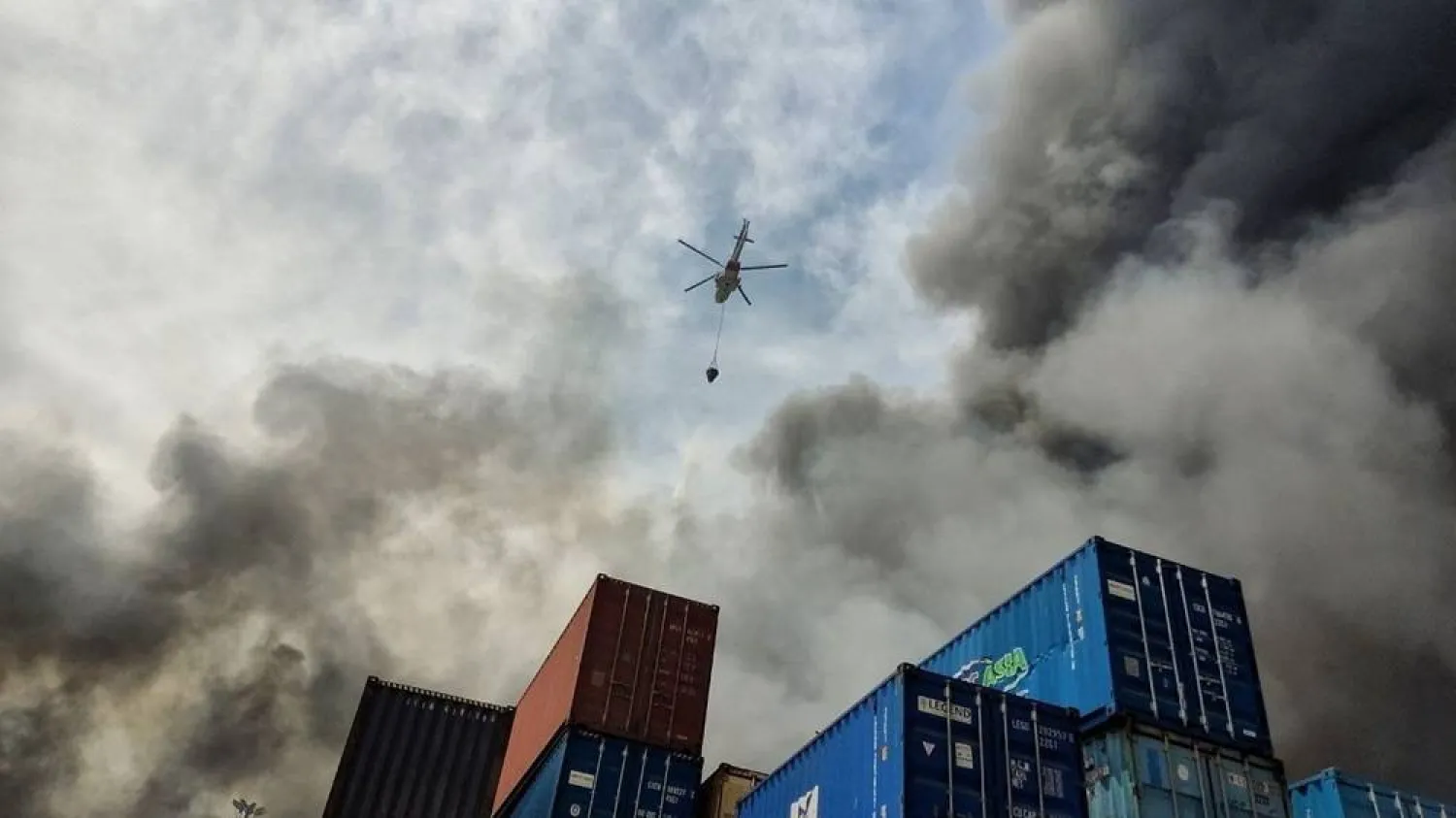Firefighters have brought under control a blaze at Iran's main port, following a deadly explosion blamed on negligence, authorities said.
The explosion, heard dozens of kilometers (miles) away, hit a dock at the southern port of Shahid Rajaee on Saturday.
At least 70 people were killed and more than 1,000 others suffered injuries in the blast and ensuing fire, which also caused extensive damage, state media reported.
Red Crescent official Mokhtar Salahshour told the channel late Monday that the fire had been "contained" and a clean-up was under way.
State television aired live footage on Tuesday showing thick smoke rising from stacked containers.
Iran's ILNA news agency quoted Hossein Zafari, spokesman for the country's crisis management organization, as saying the situation had improved significantly since Monday.
However, "the operation and complete extinguishing process may take around 15 to 20 days", the agency reported.
Iran's customs authority said port operations had returned to normal, according to the IRNA news agency.
The port of Shahid Rajaee lies near the major coastal city of Bandar Abbas on the Strait of Hormuz, a waterway through which one-fifth of global oil output passes.
Hormozgan provincial governor Mohammad Ashouri ruled out sabotage.
"The set of hypotheses and investigations carried out during the process indicated that the sabotage theory lacks basis or relevance," he told state television late Monday.
The port´s customs office said the blast may have started in a depot storing hazardous and chemical materials.
Interior Minister Eskandar Momeni said there were "shortcomings, including noncompliance with safety precautions and negligence".
A committee assigned to investigate the blast cited similar factors as the likely cause.









